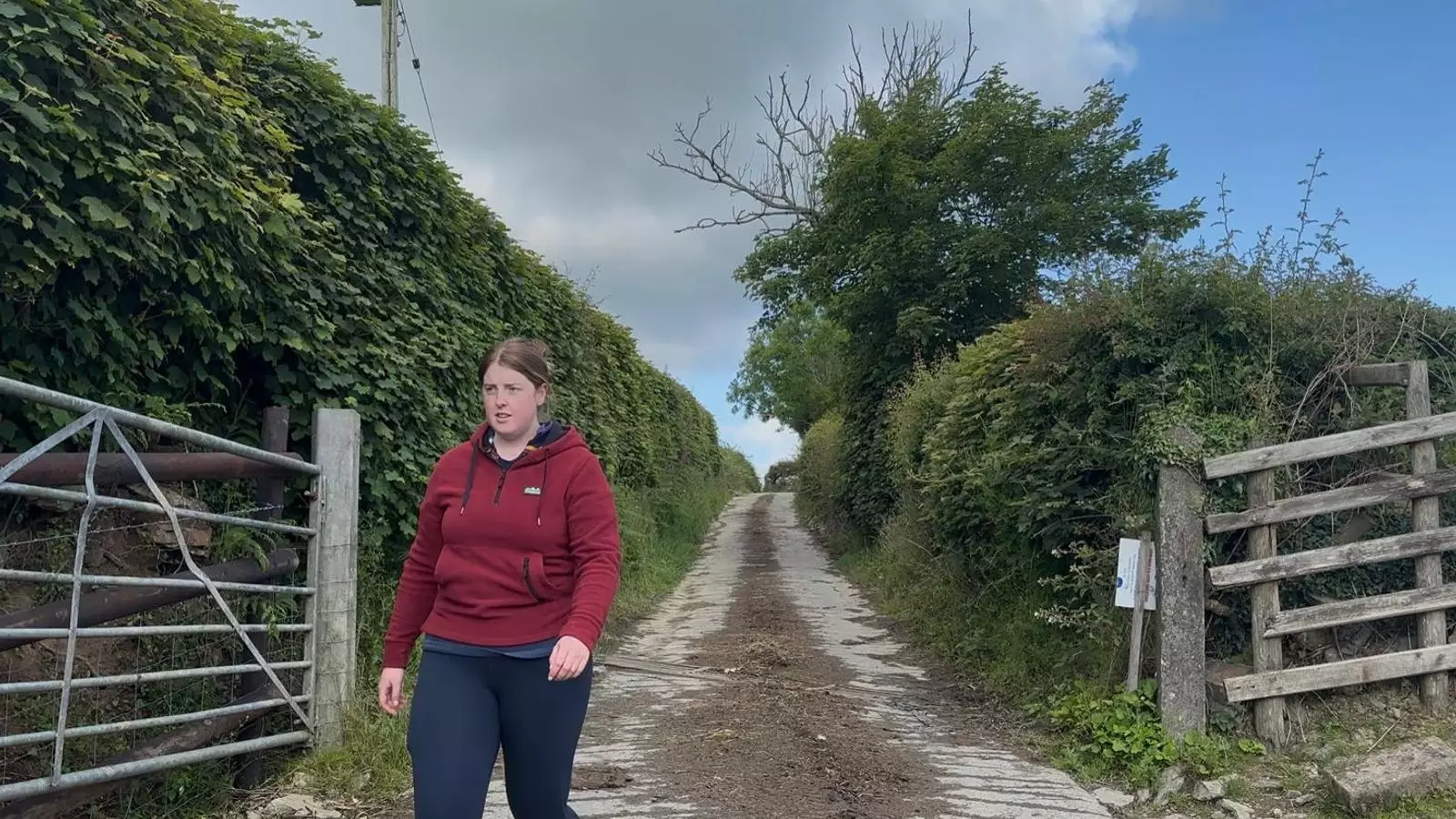The recent report revealing that rural crime in Wales has surged to its highest levels in a decade paints a troubling picture for the agricultural landscape. With losses amounting to £2.8 million in just the last year—an alarming 18% rise from the previous year—this phenomenon is far more than a statistical blip; it is a genuine crisis that threatens the very fabric of rural communities. For farmers like Caryl Davies of Pembrokeshire, the implications are profoundly personal as their livelihoods come under threat. Her family’s quad bike—their lifeline for managing livestock—was stolen, leaving them feeling vulnerable and exposed. This incident, compounded by the isolation often felt in rural settings, exemplifies the chilling reality faced by many.
The fear that accompanies such crimes is palpable. Davies expressed that the theft transformed her once peaceful home into a site of anxiety and reckoning. The stark reality is that many rural families are not only grappling with the day-to-day challenges of farming but are also forced to invest in security measures—funds that often are not readily available, especially in an already strained agricultural economy. Farming is supposed to be a generational legacy; however, it increasingly feels like a battleground where farmers contend not just with market volatility, but also with the specter of crime.
The Nature of the Crime Wave
The statistics are revealing, but they do not capture the full scale of desperation among farmers. Farmers like James Bourne from Pontypool, who has suffered the theft of over 200 sheep over four years, know that these losses impact not just their businesses but their families directly. Bourne articulated the profound frustration of struggling to maintain profitability in an industry already fraught with challenges. When crimes such as these occur, they strip away any semblance of stability that farmers may have maintained.
Organized crime targeting rural areas has become alarmingly sophisticated, with criminals employing tactics that include drone surveillance to ascertain vulnerable farms. Such insights from experts like Andrew Chalk of NFU Mutual illustrate a chilling evolution in criminal behavior, where nimbleness and technological savviness combine into a potent threat against rural communities. It raises the question: how can rural farmers not just cope but thrive in such a hostile environment?
The Response from Authorities
While police forces in Wales acknowledge the significant toll that rural crime exacts on farming communities, their plans to combat the issue spotlight a distressing reality: despite advancements in technology and policing strategies, the coverage of vast rural areas remains a daunting task. The acquisition of “advanced DNA asset-marking kits” is a step in the right direction, yet one cannot help but question whether these measures are sufficient to deter increasingly organized and brazen criminals.
Temporary Chief Superintendent Jason White has promised increased resources for rural crime units, which is commendable yet raises concerns about long-term sustainability in policing strategies. Can they keep pace with the crimes that are on the rise? Is this merely a band-aid solution to a deep-seated issue that requires holistic community engagement and structural support?
The Community Response
Communities must rally to push for systemic changes that can mitigate the effects of rural crime. A collective awareness that leads to heightened vigilance is one aspect, but so too is the call for greater local and national policy support. Recognizing that rural crime is not an isolated problem but a societal issue that affects the health of the agricultural sector is crucial. Farmers need not only policing but also insurance policies that reflect the reality of their risks, as well as financial incentives for implementing security measures.
The current state of rural crime in Wales signals a pressing need for discussions around community safety. Farmers should be viewed as partners in maintaining the security of their landscapes, rather than mere victims. Educating rural communities on issues of crime, instigating local anti-theft initiatives, and ensuring police collaboration could offer pathways to reclaim their sense of safety and security.
The escalating thefts transcending into a feasible rural crisis should not go unaddressed. Wales’ uniquely rural lifestyle and its agricultural heritage deserve robust protection against the onslaught of criminal operations. Overall, the call for action here is not just about safeguarding assets, but also about preserving the spirit of rural living that has thrived for generations.


Leave a Reply